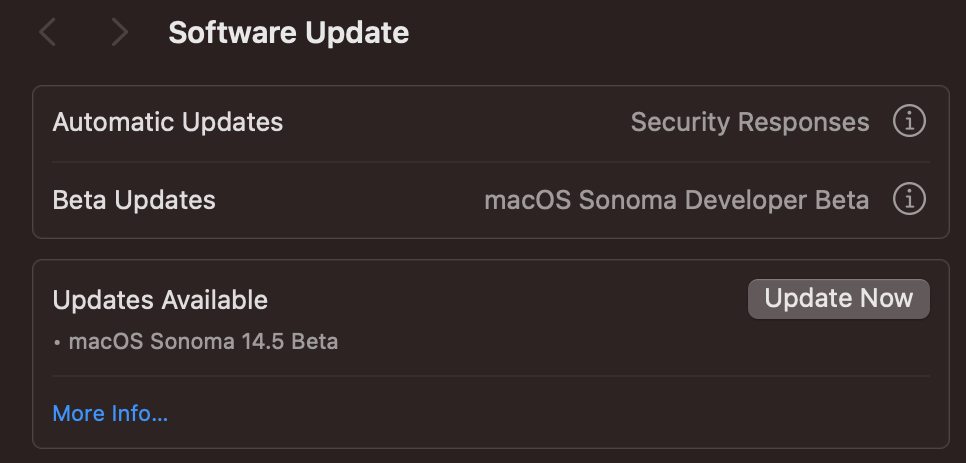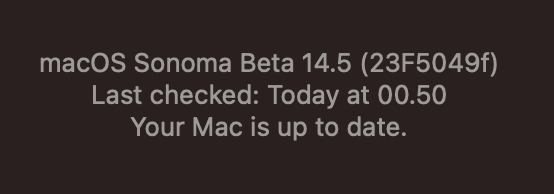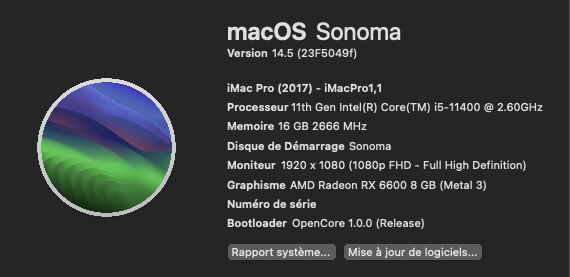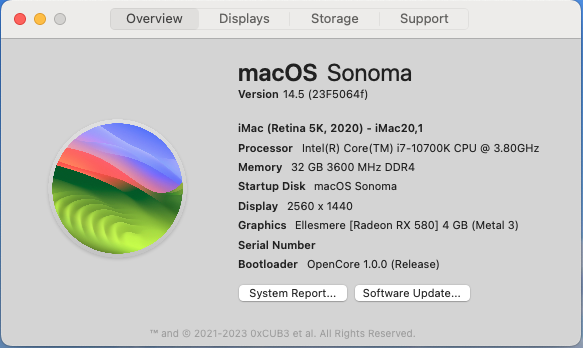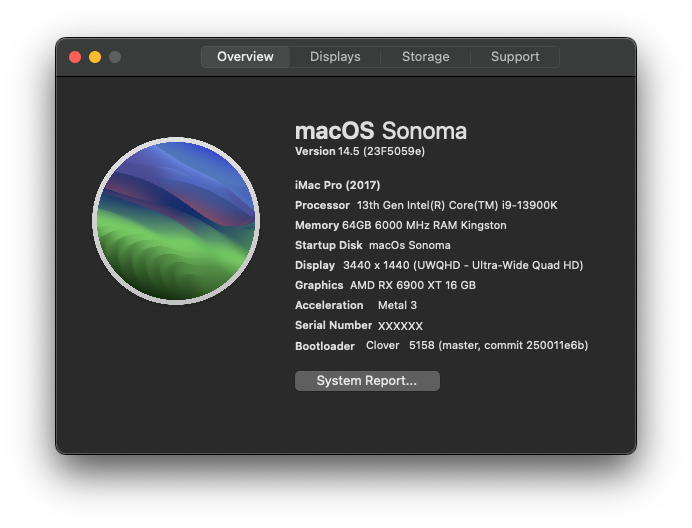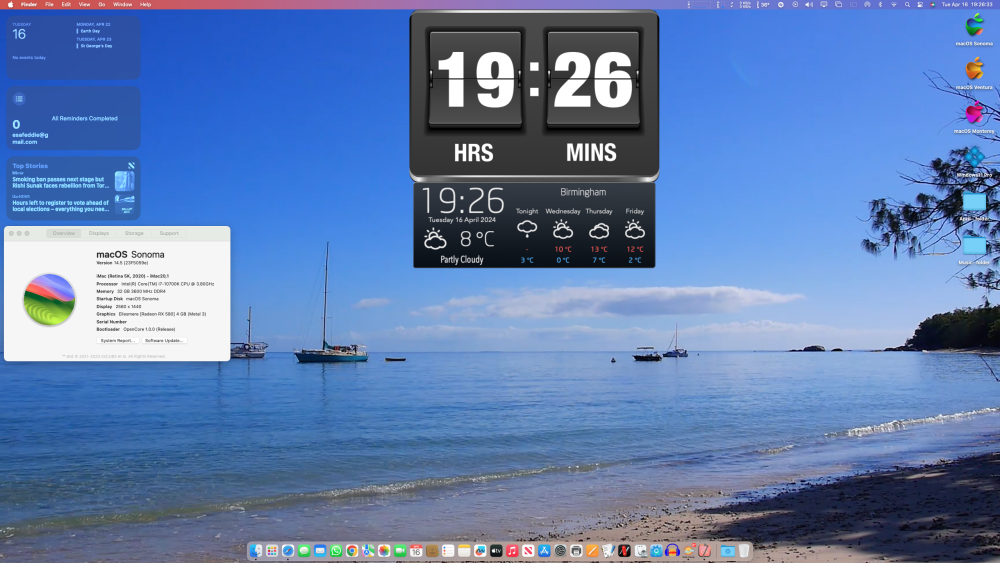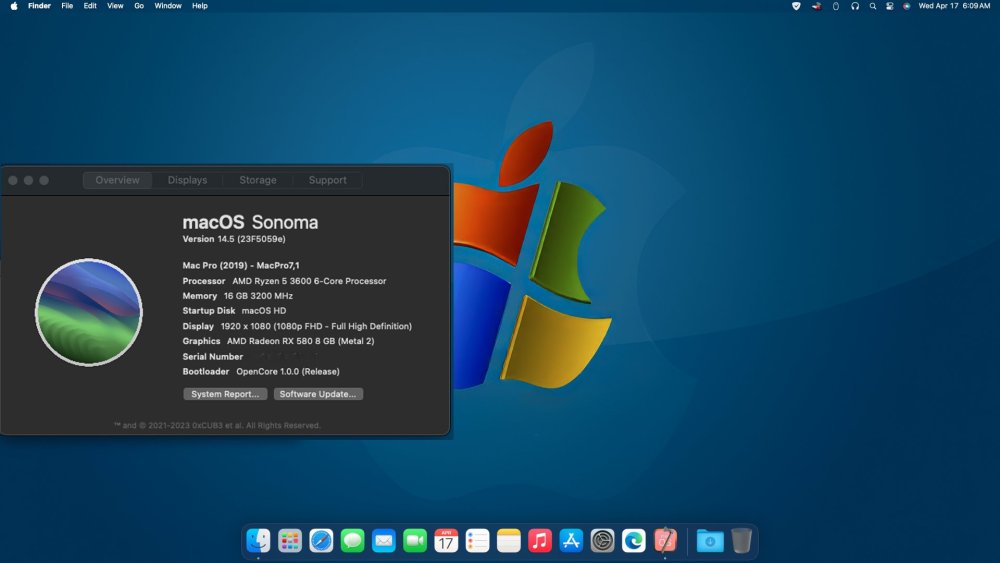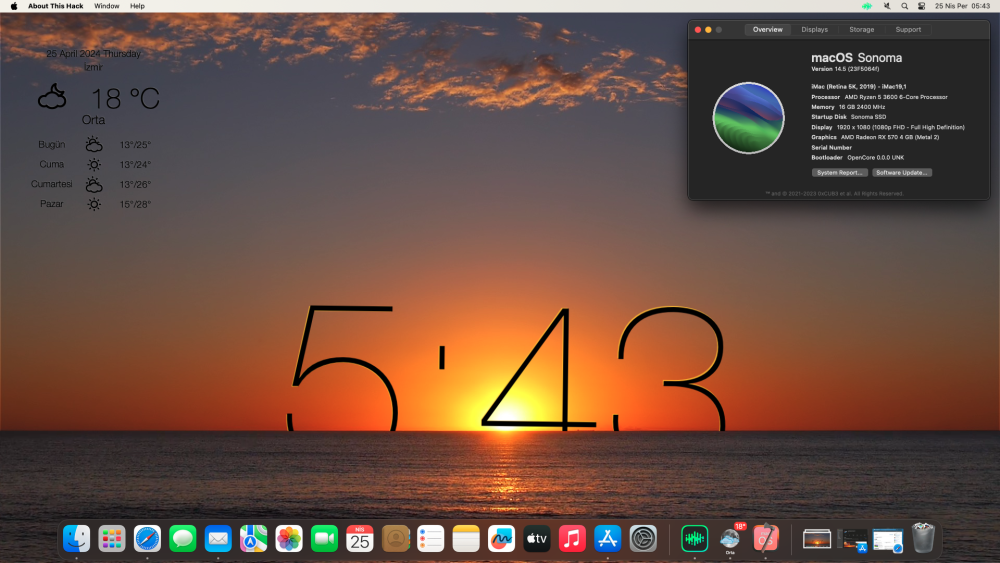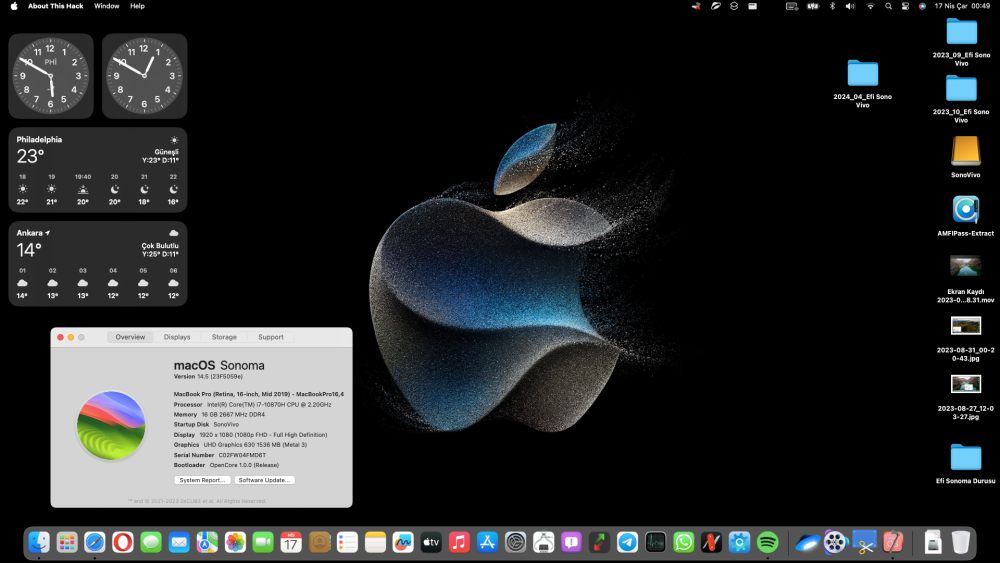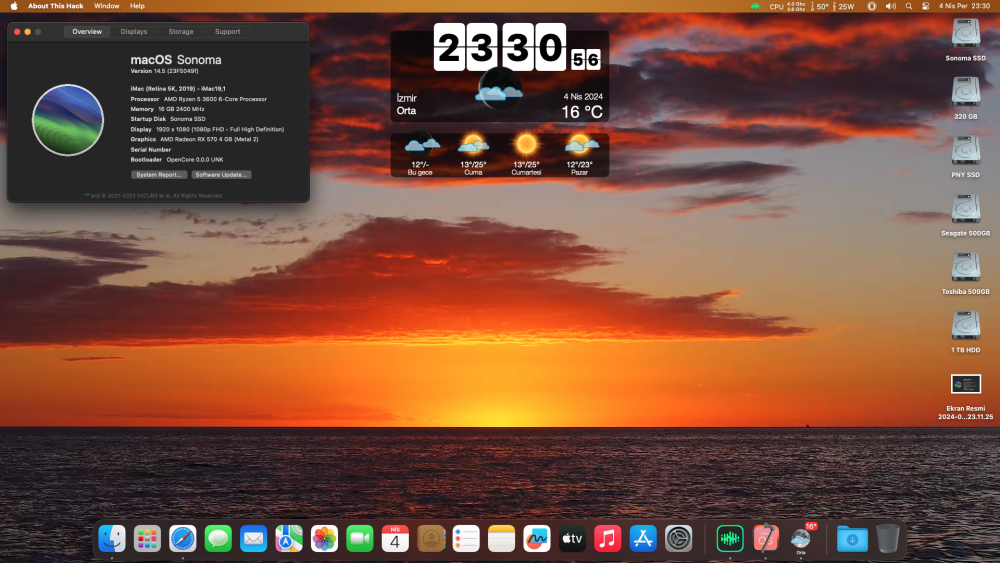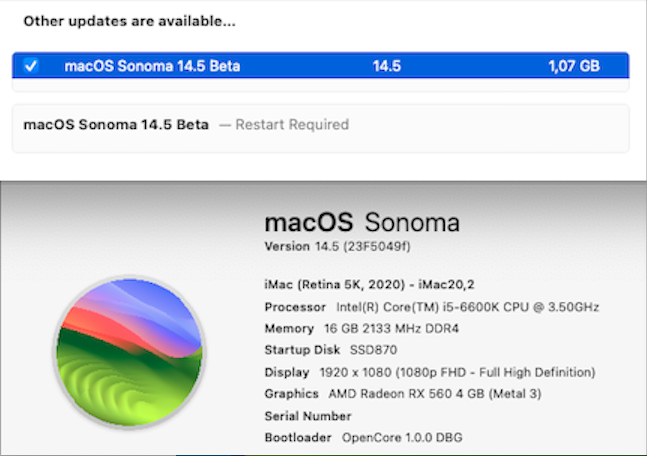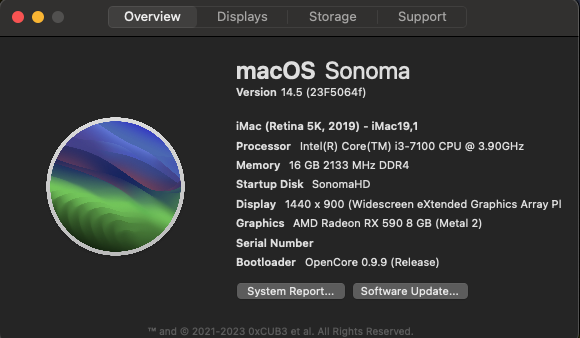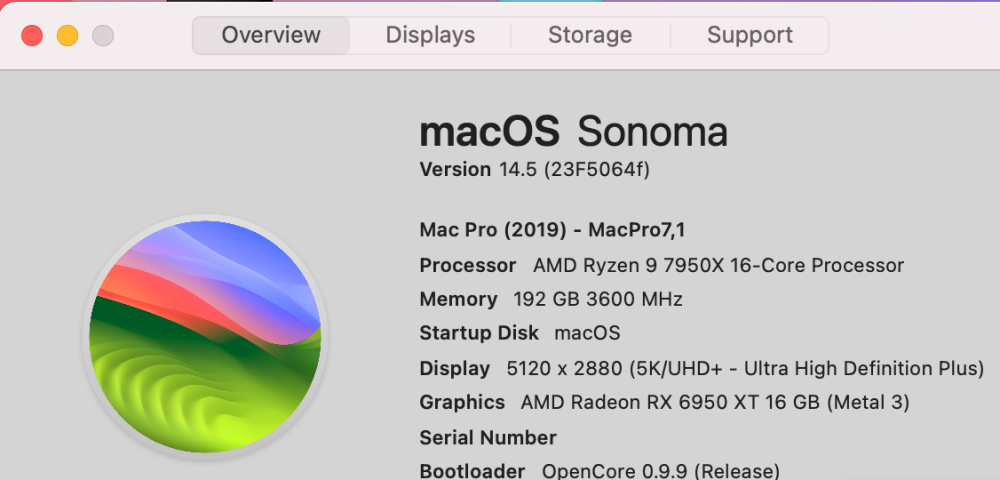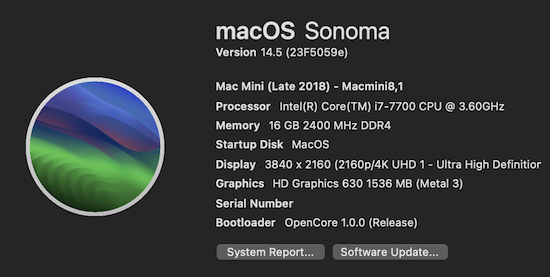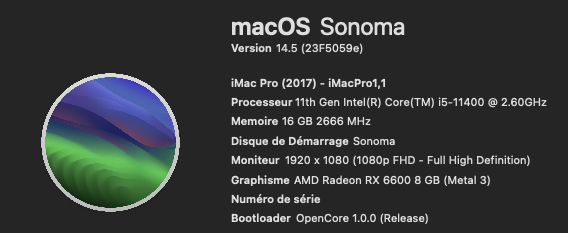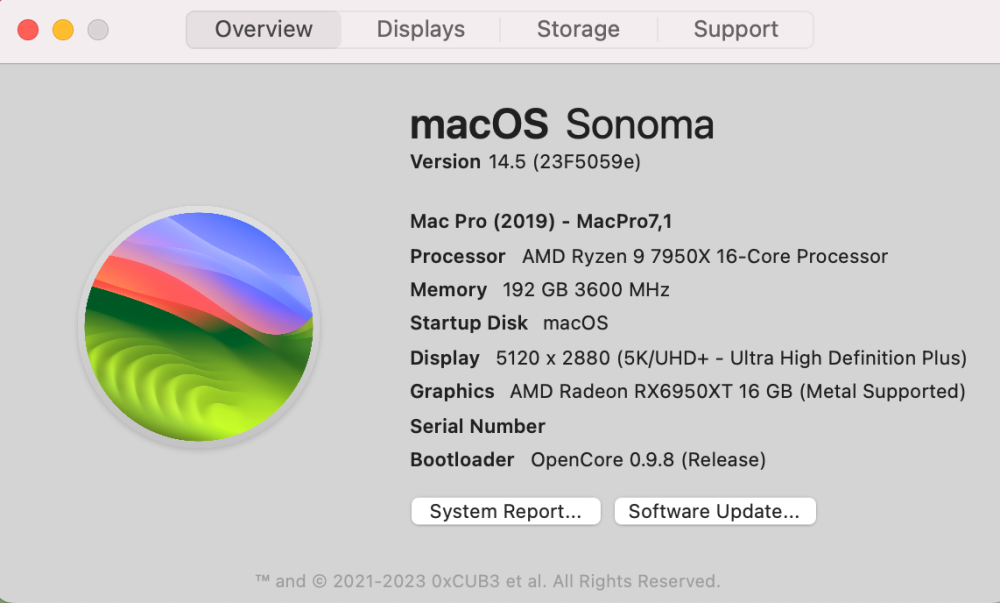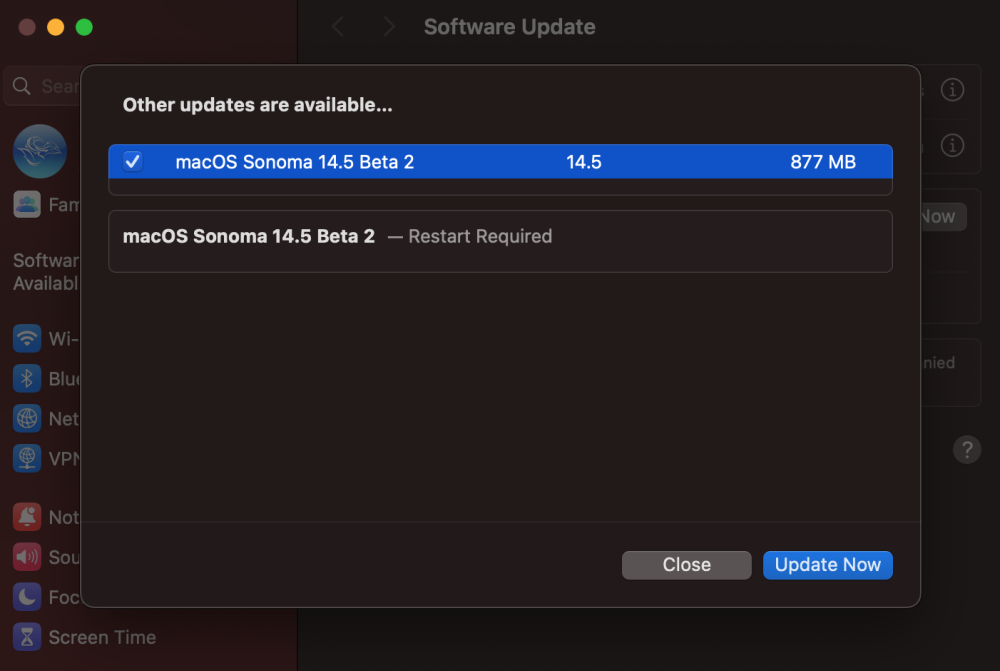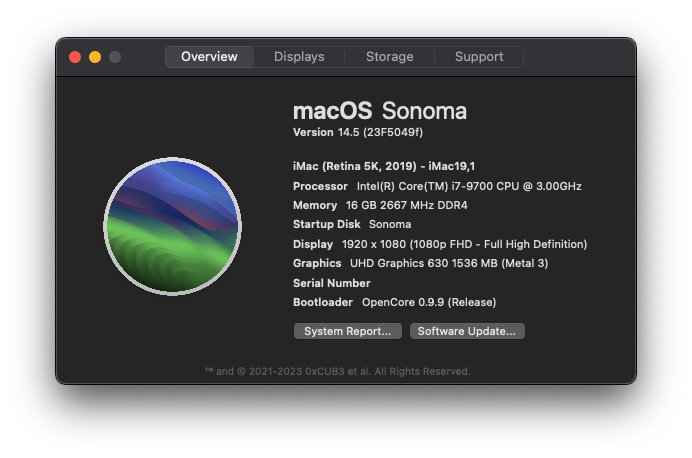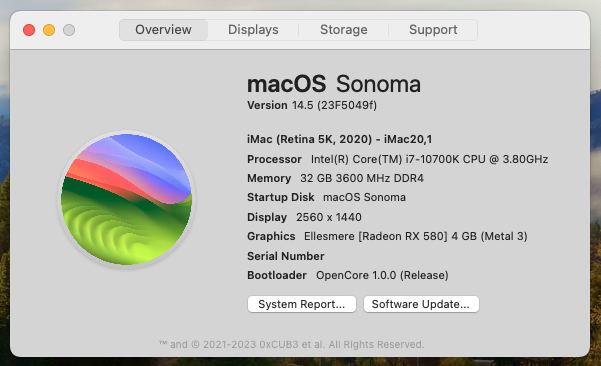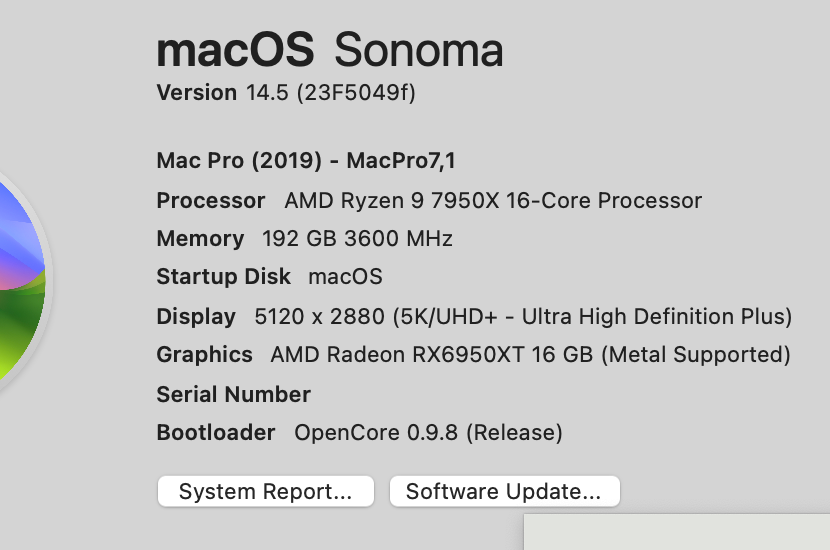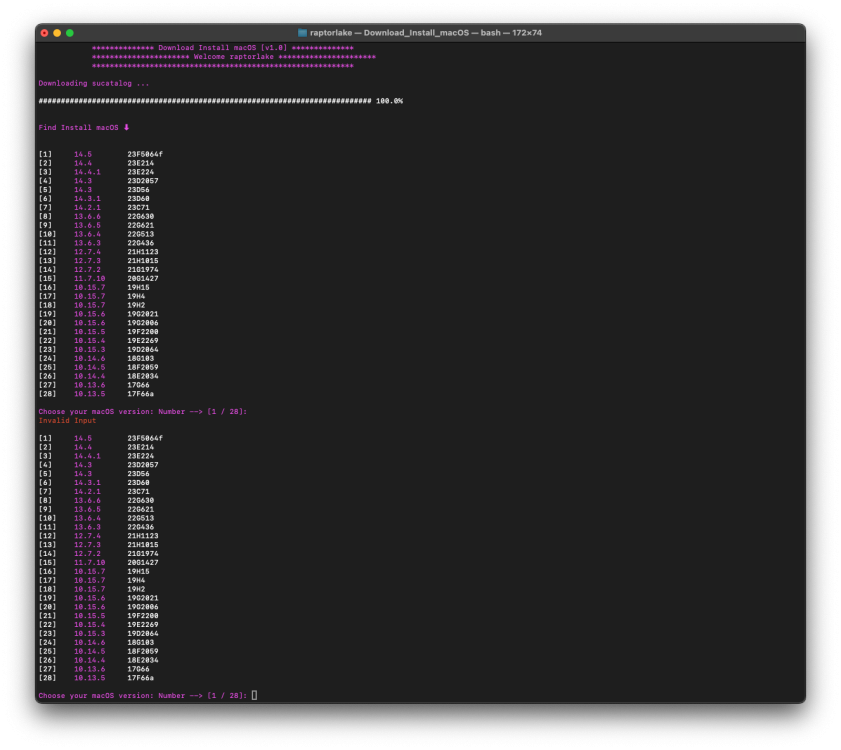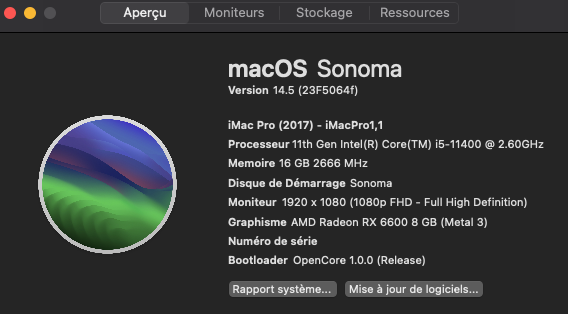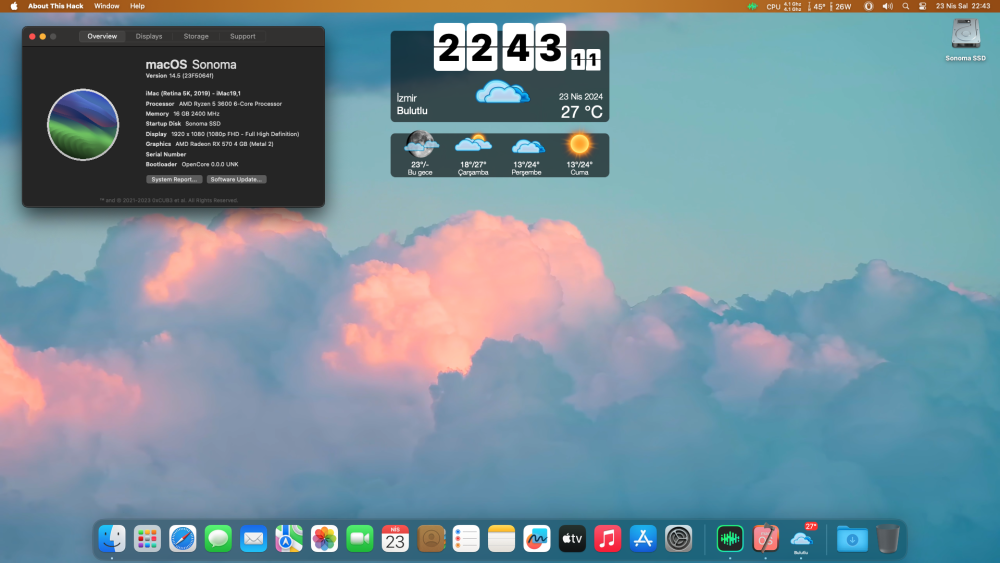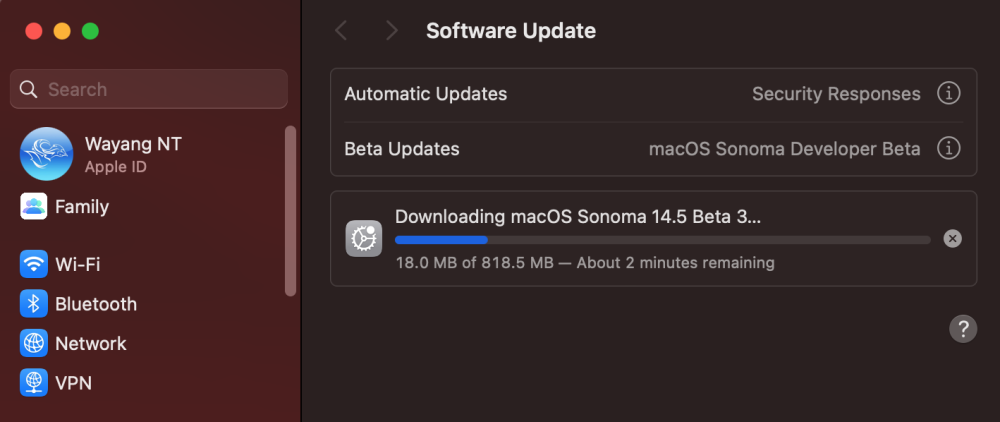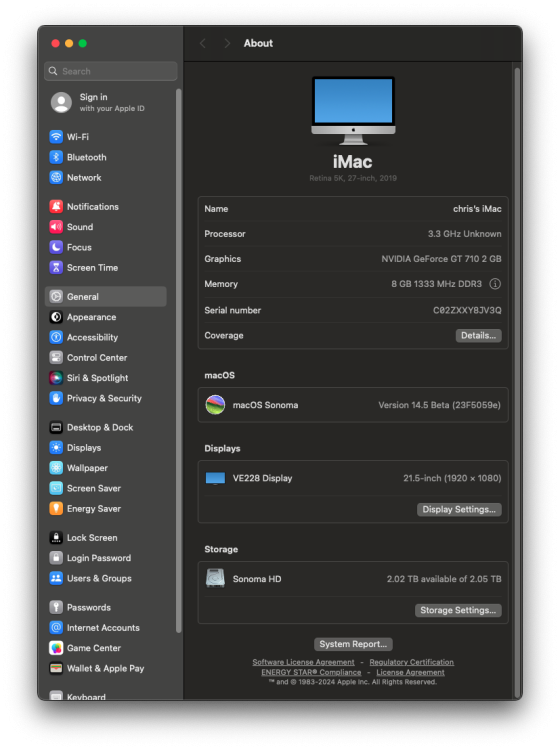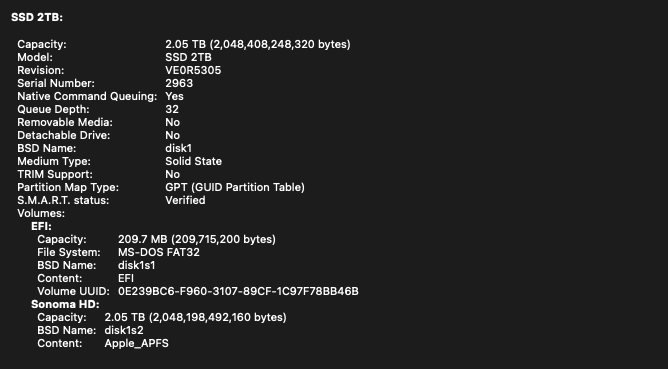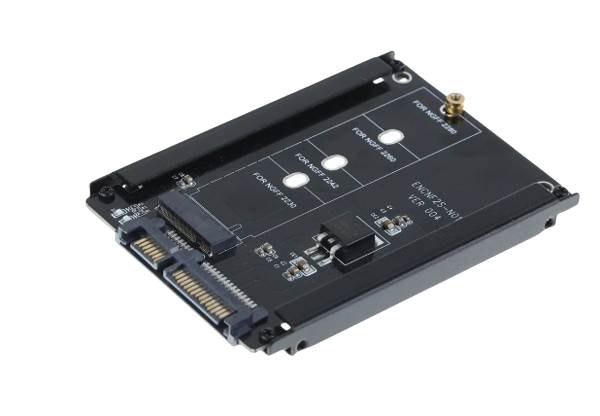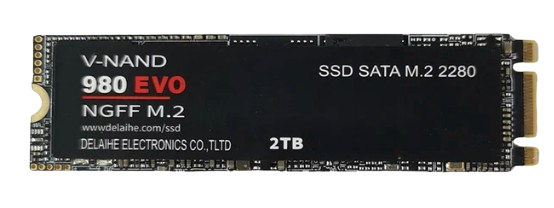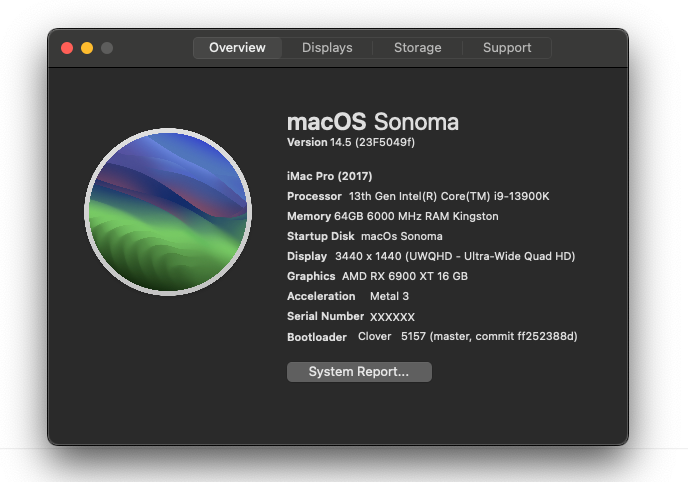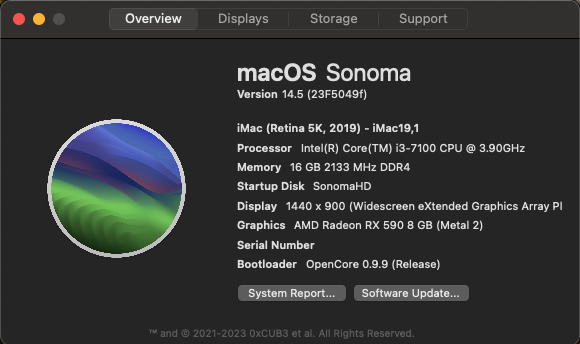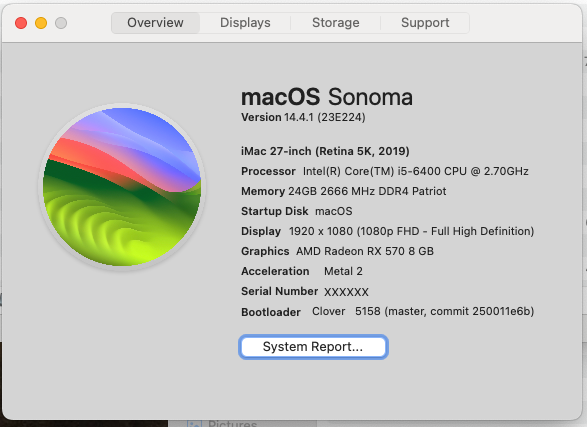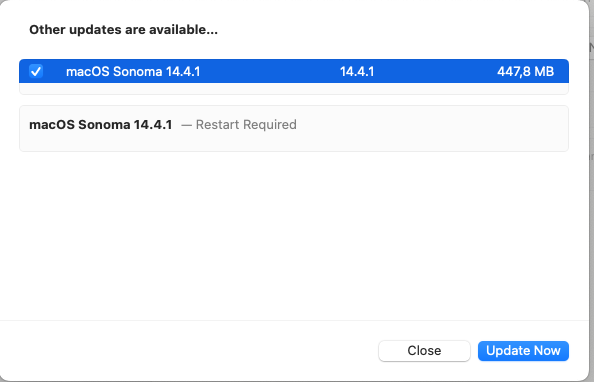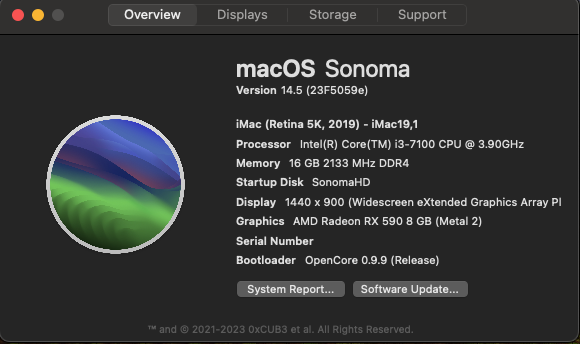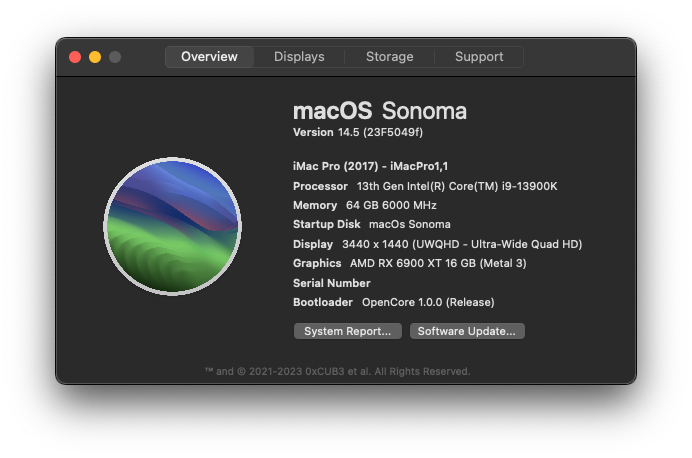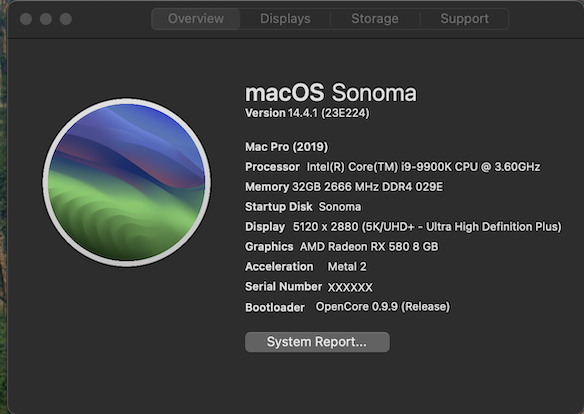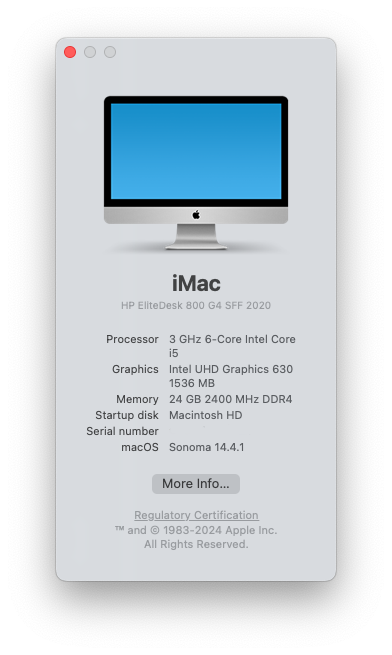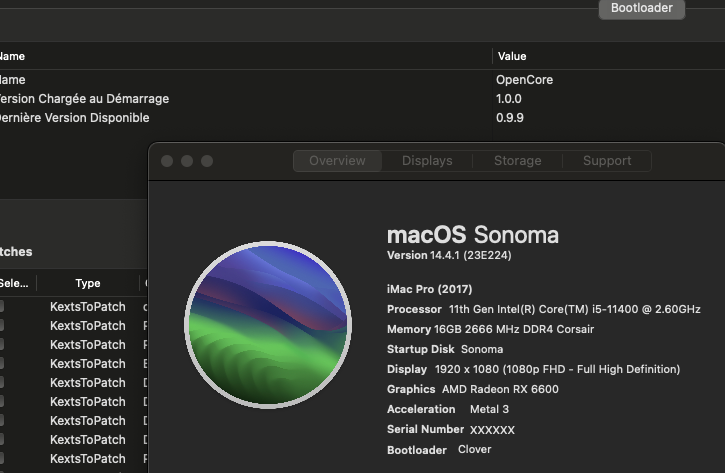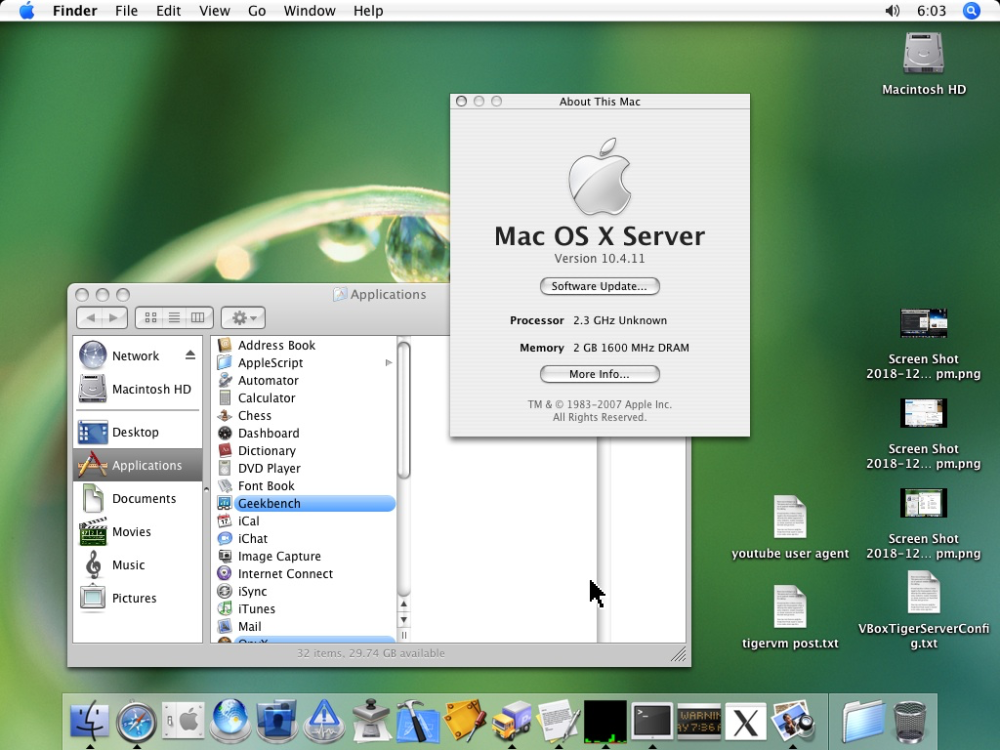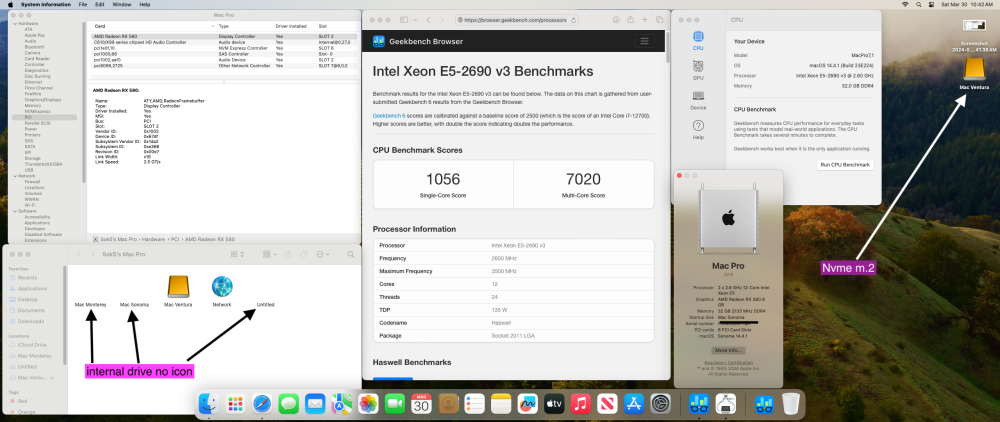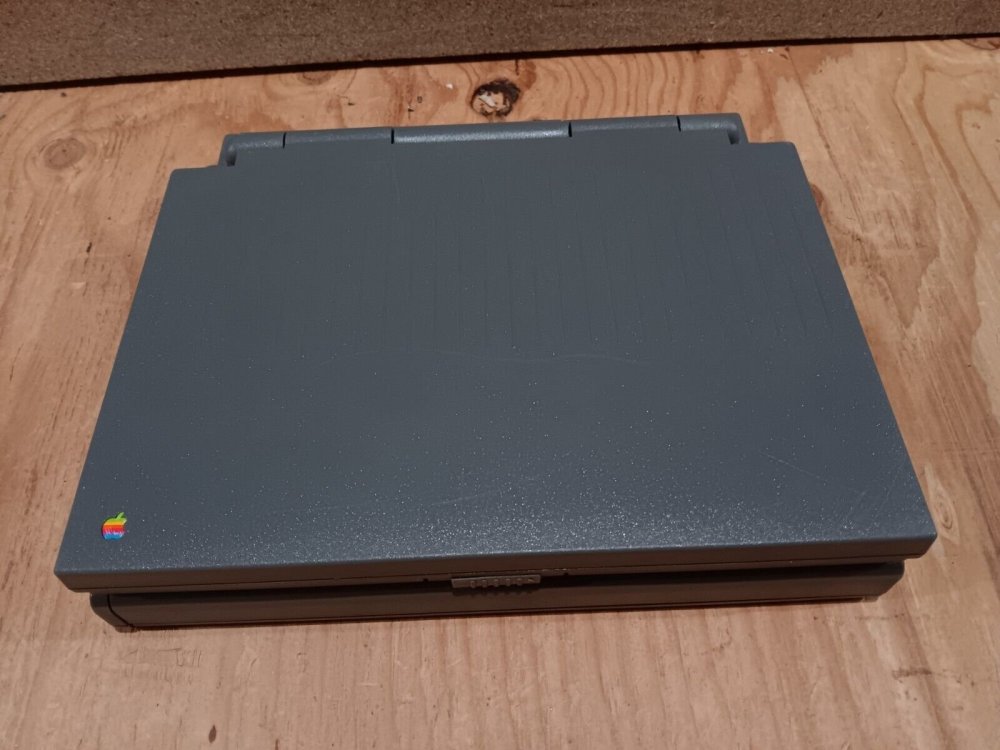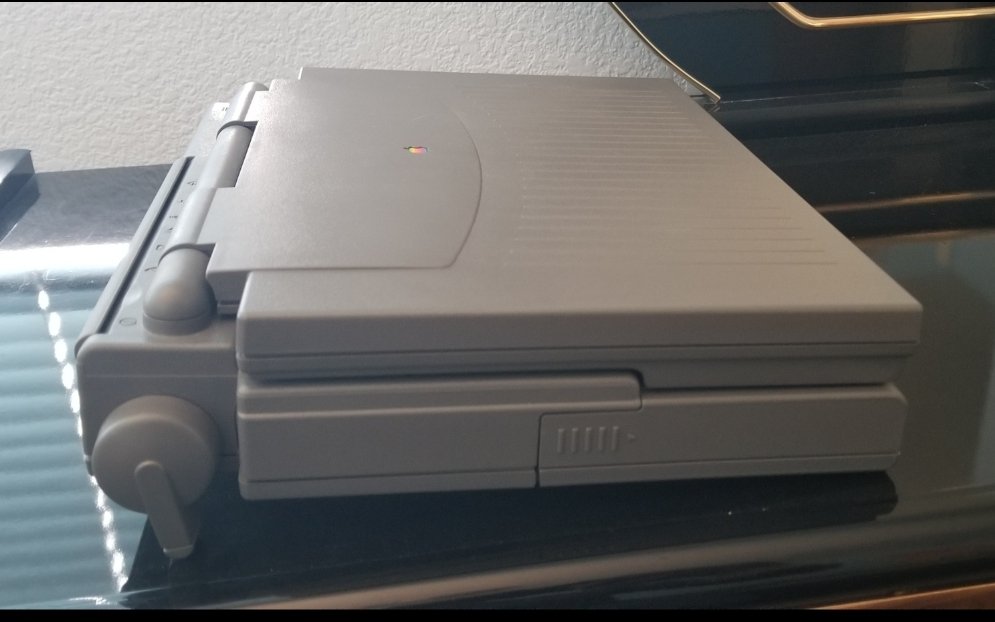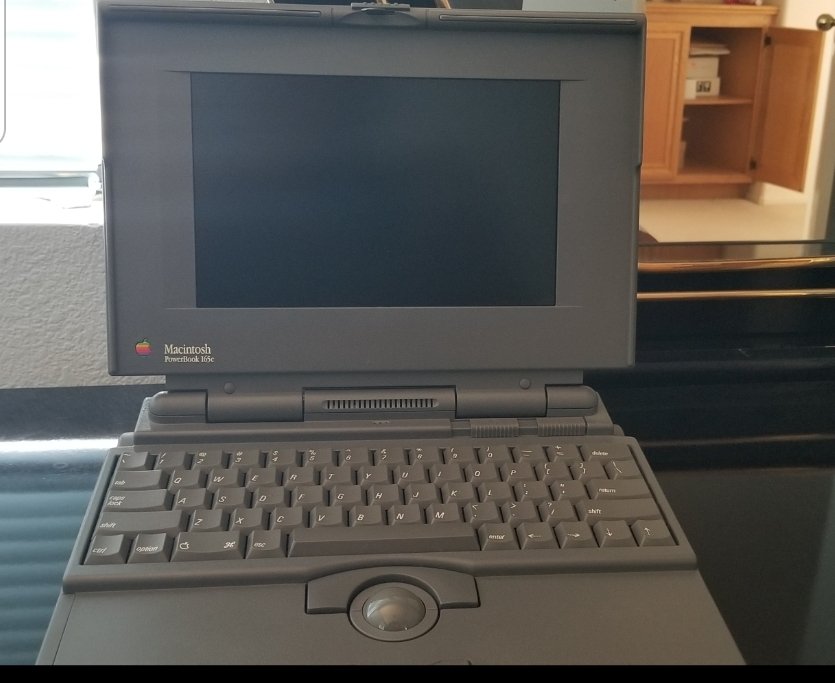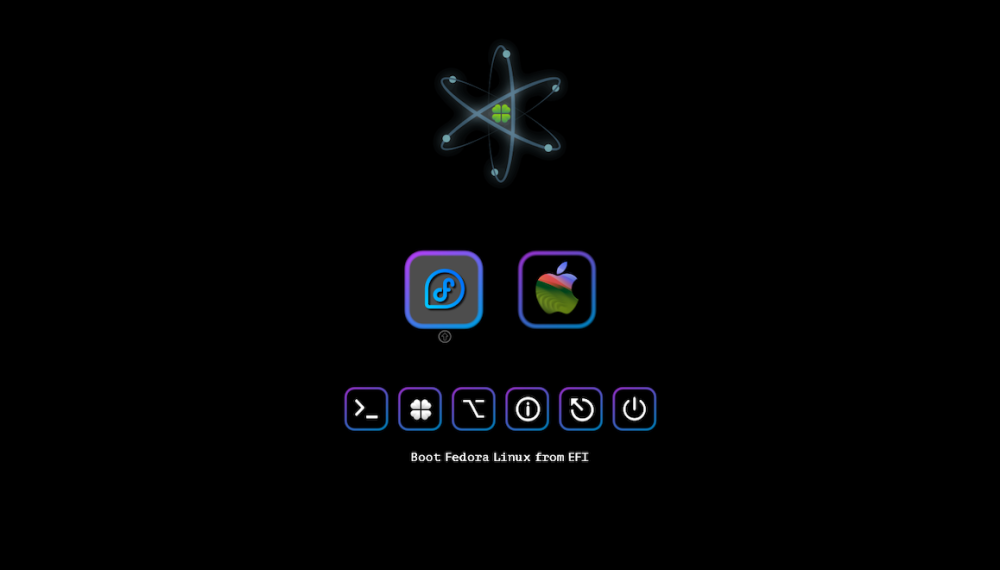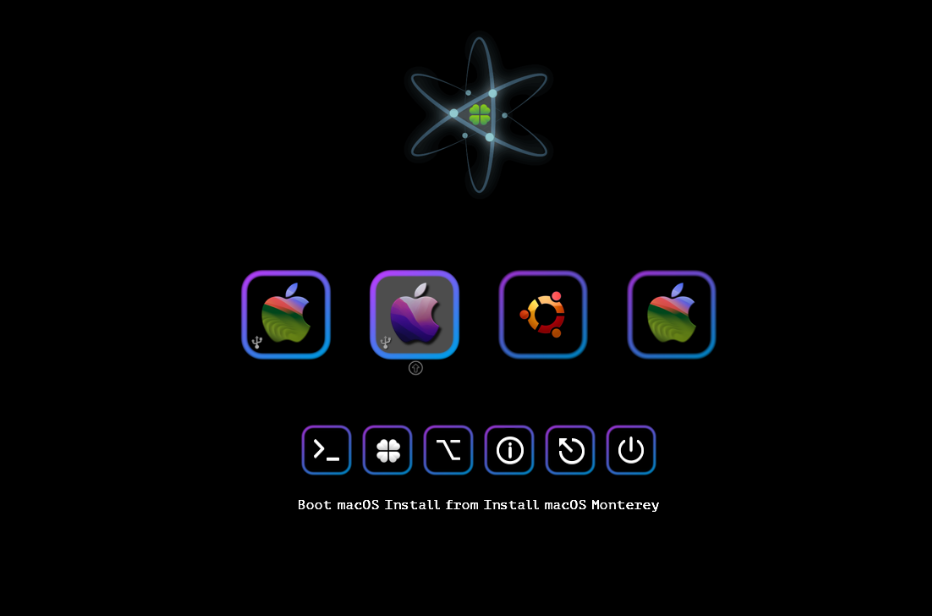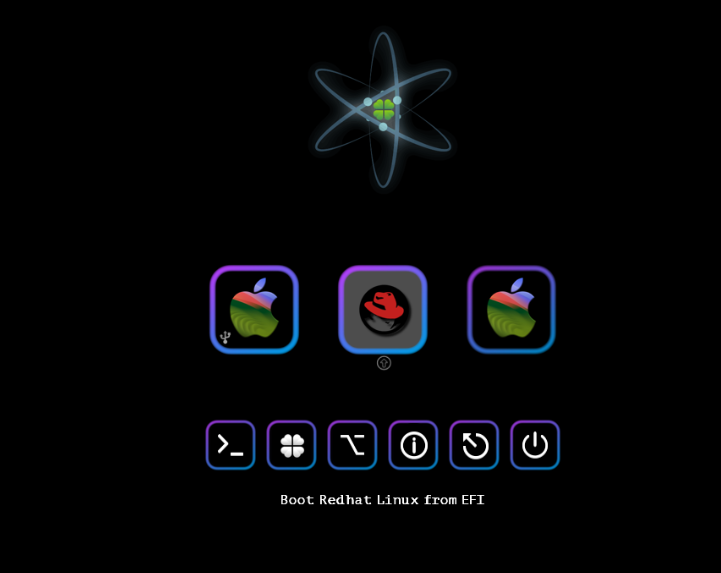Leaderboard
Popular Content
Showing content with the highest reputation since 03/27/2024 in all areas
-
11 points
-
macOS Sonoma 14.5 (23F5049f) Full Installer http://swcdn.apple.com/content/downloads/08/26/052-63603-A_72I9KV9QUS/flhemtlnjiql8wqx40cz7i2i5tjfqt84ny/InstallAssistant.pkg11 points
-
11 points
-
10 points
-
10 points
-
10 points
-
9 points
-
9 points
-
9 points
-
9 points
-
9 points
-
9 points
-
9 points
-
8 points
-
8 points
-
8 points
-
8 points
-
8 points
-
8 points
-
8 points
-
8 points
-
8 points
-
8 points
-
7 points
-
macOS Sonoma 14.5 ( 23F5064f ) Full Installer https://swcdn.apple.com/content/downloads/09/59/052-86853-A_7D10PH5J4S/eluyuwzjdg9bza6r82syi9fdr74jve9xn4/InstallAssistant.pkg7 points
-
7 points
-
7 points
-
7 points
-
7 points
-
7 points
-
7 points
-
7 points
-
7 points
-
7 points
-
7 points
-
6 points
-
6 points
-
I have built the very first kernel. It is fully supported. Patch is included. EDIT: I have used the latest patch and have recreated the kernel. Also included is the BootKernelExtensions.kc file. EDIT2: New version based on Shanee's patch. XNU-14.0.0-AnV_R3.zip6 points
-
6 points
-
@Max.1974 Regarding Clover and security, there are no conceptual blockers. The technical ideas of Clover and OC are not so different and not implementing sound SB support really is just a dev decision. And I son’t think they are going to reconsider. The rest I can only address by a history lesson. In 2013 or so, I started submitting changes to Clover - a bit shoddy at first, but it got better quickly. In 2014, I started RE’ing Apple-proprietary EFI extensions. Some time in 2015 or so, I started proposing integrating some into Clover, starting with the boot hotkeys. I got a response akin “Hack cannot support hotkeys because it’s no Mac” at the time, despite providing RE’d headers and implementations. The same year I started talking to The HermitCrabs Lab, so I decided “well, ok, give it to Ozmosis then”. Contributing to both Clover and Oz, I proposed collaborating more and got meddled up in their beef with Slice, who dropped the same ridiculous comments about Oz then as he does now about OC. There were claims Oz stole a lot of stuff from Clover, but once I got access to the repos much later, I could validate first-hand most rather happened vice-versa. Anyway, Oz kept expanding with my RE results, including the bless support that now makes OC support for macOS installers and such seamless. When Vitaly re-appeared in 2017, we tried to get FV2 working with Clover and were faced with serious technical issues from Clover’s side. Around the same time, Clover v3 got proposed and I - yet again - tried to push for a collaboration. Alas, the project leadership was a mess and nothing ever happened. At the same time yet, HermitCrabs wanted to re-do Ozmosis - basically OC v0. Tired of the technical issues with Clover v2, Vitaly acquired the thing and we started bringing the pieces together. And - yet again - we tried to collaborate, basically suggesting to make this Clover v3. At some point, there were talks that Slice may contribute the GUI to OC. What we got instead were no contributions whatsoever and instead the snarky comments about Oz became snarky comments about OC. So when Clover started leveraging OC libraries in 202x, I - yet again - suggested to collaborate. After all, we know our code best. So I made remarks about stuff like how they used our symbol patcher and I was basically told I’m just here to hate on their efforts. Two weeks later, they hit the very issue I warned them of and applied the fix I told them to ahead of time. So, everyone chiming wisdoms about “but there’s always two parties” and “drop the beef”, sorry that I will not try a fifth(!) time to turn this nonsense into something constructive. I think I got more burnout from Team Clover politics than from all OC work to date.6 points
-
@D3v1L No, I wouldn't do that, because macOS already has its advantages over Windoof!! You just have to have some time to get to grips with the new Sonoma. That's my personal opinion and as a pensioner I have enough time for that 🙂6 points
-
Apple Secure Boot is the technology used in Macs to verify the integrity of the operating system at boot: boot loader > kernel > system volume snapshot. If this check fails, macOS won't boot. Apple Secure Boot only works during the boot process, once macOS is running it no longer performs any function. Apple defines 3 Secure Boot modes: Full Security: Only allows to boot the installed operating system or another signed version of macOS in which Apple currently trusts. It also checks the integrity of the installed version. If the check fails, the system offers to reinstall macOS or boot from a different disk. Medium Security: Checks that the installed version of macOS is legitimate but not the integrity of the system. Lets you boot any signed version of macOS in which Apple has ever trusted. No Security: other systems or versions different from those mentioned in the secure options are allowed. There are no requirements on the boot operating system. Apple Secure Boot state on Intel-based Macs can be obtained from NVRAM: nvram 94b73556-2197-4702-82a8-3e1337dafbfb:AppleSecureBootPolicy If the variable is found, it can be one of the following: %02 - Full Security Mode %01 - Medium Security Mode %00 - No Security Mode If the variable is not found, Apple Secure Boot is not supported. SecureBootModel with other value than Disabled gives Medium Security, for Full Security you must use ApECID. SecureBootModel and ApECID: with SecureBootModel=Disabled>> no security (%00) with SecureBootModel=x86legacy or any of the valid values >> medium security (%01) with SecureBootModel= any of the T2 values plus ApECID non zero >> full security (%02). Notice that since OpenCore 0.7.2: x86legacy is designed for machines without T2 chip with Big Sur and Monterey j137 doesn't work on Monterey j137 is the recommended value for macOS 10.13.2 through 10.15.x systems older than macOS 10.13.2 must set SecureBootModel=Disabled users who don't want to have Apple Secure Boot for any reason can set SecureBootModel=Disabled, even in Big Sur and Monterey. In summary, these are muy opinions: I appreciate the interest that the Opencore developers have had in making our Hacks as similar as possible to a real Mac, including Apple Secure Boot. I know that it is impossible for everything to be exactly the same, but they have managed to give OpenCore features that very often make me forget that I am using a Hack and not a real Mac SecureBootModel=Disabled does not appear to lower the Hack's security below a required level, at least for personal PCs. SecureBootModel only acts at boot time to check the legitimacy/integrity of the booting system. Another thing is in multi-user environments (business...) where a malicious user can access the Hack to boot it from a device with manipulated macOS. I don't agree 100% with @Slice. There are Macs without T2 that have Apple Secure Boot medium security, for example iMac19,1 with macOS 10.14 or newer. But I do agree with him that having SecureBootModel enabled or disabled has no/little importance in Hacks. Without forgetting that Clover lacks this property and many thousands of users have used it and are using it to full satisfaction.6 points
-
Security on Apple computers provided by encryption by T2 chip which we have no. So why SecureBootModel is useless for us.6 points
-
6 points
-
6 points
-
6 points
-
5 points
-
5 points
-
If the Open Core change log remains as planned, the next release of Open Core will be version 1.0.0. There's nothing significant about this version numbering, as it is simply the numerical progression from version 0.9.9. As with recent OCLP versions after OCLP 0.9.6, there does not appear to me to be any compelling reason to upgrade to the latest Open Core binaries; however, I will be updating the OC EFI attached to Post #1 only to have an OC EFI for OC 1.0.0.5 points
-
Here are some benchmark test results comparing IntelLucy (V1.0.0d9) to com.apple.DriverKit-AppleEthernetIXGBE under Ventura. The test machine is the one with the MSI mainboard from my signature. AppleVTD is enabled in both test scenarios. The machine on the other side is my Ubuntu 22.04 LTS server. Both machines are equipped with an Intel X520-DA1 adapter. First, give com.apple.DriverKit-AppleEthernetIXGBE a try. The MTU was set to 2034, the maximum value that com.apple.DriverKit-AppleEthernetIXGBE supports. Note that the IPv4 receive test fails due to the lack of proper jumbo frame support because the Ubuntu server uses jumbo frames. laura@lucy ~ % iperf3 -w 384K -B 192.168.10.202 -c 192.168.10.32 Connecting to host 192.168.10.32, port 5201 [ 4] local 192.168.10.202 port 49937 connected to 192.168.10.32 port 5201 [ ID] Interval Transfer Bandwidth [ 4] 0.00-1.00 sec 801 MBytes 6.72 Gbits/sec [ 4] 1.00-2.00 sec 805 MBytes 6.76 Gbits/sec [ 4] 2.00-3.00 sec 802 MBytes 6.73 Gbits/sec [ 4] 3.00-4.00 sec 799 MBytes 6.71 Gbits/sec [ 4] 4.00-5.00 sec 803 MBytes 6.74 Gbits/sec [ 4] 5.00-6.00 sec 873 MBytes 7.32 Gbits/sec [ 4] 6.00-7.00 sec 837 MBytes 7.02 Gbits/sec [ 4] 7.00-8.00 sec 798 MBytes 6.69 Gbits/sec [ 4] 8.00-9.00 sec 816 MBytes 6.84 Gbits/sec [ 4] 9.00-10.00 sec 798 MBytes 6.69 Gbits/sec - - - - - - - - - - - - - - - - - - - - - - - - - [ ID] Interval Transfer Bandwidth [ 4] 0.00-10.00 sec 7.94 GBytes 6.82 Gbits/sec sender [ 4] 0.00-10.00 sec 7.94 GBytes 6.82 Gbits/sec receiver iperf Done. laura@lucy ~ % iperf3 -w 384K -B 192.168.10.202 -c 192.168.10.32 -R Connecting to host 192.168.10.32, port 5201 Reverse mode, remote host 192.168.10.32 is sending [ 4] local 192.168.10.202 port 49900 connected to 192.168.10.32 port 5201 [ ID] Interval Transfer Bandwidth [ 4] 0.00-1.00 sec 0.00 Bytes 0.00 bits/sec [ 4] 1.00-2.01 sec 0.00 Bytes 0.00 bits/sec [ 4] 2.01-3.01 sec 0.00 Bytes 0.00 bits/sec [ 4] 3.01-4.01 sec 0.00 Bytes 0.00 bits/sec [ 4] 4.01-5.01 sec 0.00 Bytes 0.00 bits/sec [ 4] 5.01-6.01 sec 0.00 Bytes 0.00 bits/sec [ 4] 6.01-7.00 sec 0.00 Bytes 0.00 bits/sec [ 4] 7.00-8.00 sec 0.00 Bytes 0.00 bits/sec [ 4] 8.00-9.01 sec 0.00 Bytes 0.00 bits/sec [ 4] 9.01-10.01 sec 0.00 Bytes 0.00 bits/sec - - - - - - - - - - - - - - - - - - - - - - - - - [ ID] Interval Transfer Bandwidth Retr [ 4] 0.00-10.01 sec 454 KBytes 372 Kbits/sec 5 sender [ 4] 0.00-10.01 sec 0.00 Bytes 0.00 bits/sec receiver iperf Done. laura@lucy ~ % iperf3 -w 384K -B 2a01:c22:bc0d:2000::217 -c 2a01:c22:bc0d:2000::32 Connecting to host 2a01:c22:bc0d:2000::32, port 5201 [ 4] local 2a01:c22:bc0d:2000::217 port 49902 connected to 2a01:c22:bc0d:2000::32 port 5201 [ ID] Interval Transfer Bandwidth [ 4] 0.00-1.00 sec 845 MBytes 7.08 Gbits/sec [ 4] 1.00-2.00 sec 841 MBytes 7.06 Gbits/sec [ 4] 2.00-3.00 sec 835 MBytes 7.01 Gbits/sec [ 4] 3.00-4.00 sec 841 MBytes 7.05 Gbits/sec [ 4] 4.00-5.00 sec 845 MBytes 7.09 Gbits/sec [ 4] 5.00-6.00 sec 820 MBytes 6.88 Gbits/sec [ 4] 6.00-7.00 sec 844 MBytes 7.08 Gbits/sec [ 4] 7.00-8.00 sec 842 MBytes 7.06 Gbits/sec [ 4] 8.00-9.00 sec 842 MBytes 7.06 Gbits/sec [ 4] 9.00-10.00 sec 847 MBytes 7.11 Gbits/sec - - - - - - - - - - - - - - - - - - - - - - - - - [ ID] Interval Transfer Bandwidth [ 4] 0.00-10.00 sec 8.20 GBytes 7.05 Gbits/sec sender [ 4] 0.00-10.00 sec 8.20 GBytes 7.05 Gbits/sec receiver iperf Done. laura@lucy ~ % iperf3 -w 384K -B 2a01:c22:bc0d:2000::217 -c 2a01:c22:bc0d:2000::32 -R Connecting to host 2a01:c22:bc0d:2000::32, port 5201 Reverse mode, remote host 2a01:c22:bc0d:2000::32 is sending [ 4] local 2a01:c22:bc0d:2000::217 port 49904 connected to 2a01:c22:bc0d:2000::32 port 5201 [ ID] Interval Transfer Bandwidth [ 4] 0.00-1.00 sec 1.08 GBytes 9.27 Gbits/sec [ 4] 1.00-2.00 sec 1.08 GBytes 9.28 Gbits/sec [ 4] 2.00-3.00 sec 1.08 GBytes 9.28 Gbits/sec [ 4] 3.00-4.00 sec 1.08 GBytes 9.28 Gbits/sec [ 4] 4.00-5.00 sec 1.08 GBytes 9.28 Gbits/sec [ 4] 5.00-6.00 sec 1.08 GBytes 9.28 Gbits/sec [ 4] 6.00-7.00 sec 1.08 GBytes 9.28 Gbits/sec [ 4] 7.00-8.00 sec 1.08 GBytes 9.28 Gbits/sec [ 4] 8.00-9.00 sec 1.08 GBytes 9.28 Gbits/sec [ 4] 9.00-10.00 sec 1.08 GBytes 9.28 Gbits/sec - - - - - - - - - - - - - - - - - - - - - - - - - [ ID] Interval Transfer Bandwidth Retr [ 4] 0.00-10.00 sec 10.8 GBytes 9.28 Gbits/sec 0 sender [ 4] 0.00-10.00 sec 10.8 GBytes 9.28 Gbits/sec receiver iperf Done. Now it's IntelLucy's turn. On both machines, the Hackintosh and the Ubuntu server, MTU was set to 9000. Let's take a look at the test results: laura@lucy ~ % iperf3 -w 384K -B 192.168.10.202 -c 192.168.10.32 Connecting to host 192.168.10.32, port 5201 [ 4] local 192.168.10.202 port 49428 connected to 192.168.10.32 port 5201 [ ID] Interval Transfer Bandwidth [ 4] 0.00-1.00 sec 1.09 GBytes 9.36 Gbits/sec [ 4] 1.00-2.00 sec 1.09 GBytes 9.38 Gbits/sec [ 4] 2.00-3.00 sec 1.09 GBytes 9.37 Gbits/sec [ 4] 3.00-4.00 sec 1.09 GBytes 9.39 Gbits/sec [ 4] 4.00-5.00 sec 1.09 GBytes 9.39 Gbits/sec [ 4] 5.00-6.00 sec 1.09 GBytes 9.38 Gbits/sec [ 4] 6.00-7.00 sec 1.09 GBytes 9.39 Gbits/sec [ 4] 7.00-8.00 sec 1.09 GBytes 9.36 Gbits/sec [ 4] 8.00-9.00 sec 1.09 GBytes 9.38 Gbits/sec [ 4] 9.00-10.00 sec 1.09 GBytes 9.36 Gbits/sec - - - - - - - - - - - - - - - - - - - - - - - - - [ ID] Interval Transfer Bandwidth [ 4] 0.00-10.00 sec 10.9 GBytes 9.38 Gbits/sec sender [ 4] 0.00-10.00 sec 10.9 GBytes 9.38 Gbits/sec receiver iperf Done. laura@lucy ~ % iperf3 -w 384K -B 192.168.10.202 -c 192.168.10.32 -R Connecting to host 192.168.10.32, port 5201 Reverse mode, remote host 192.168.10.32 is sending [ 4] local 192.168.10.202 port 49430 connected to 192.168.10.32 port 5201 [ ID] Interval Transfer Bandwidth [ 4] 0.00-1.00 sec 1.15 GBytes 9.85 Gbits/sec [ 4] 1.00-2.00 sec 1.15 GBytes 9.88 Gbits/sec [ 4] 2.00-3.00 sec 1.15 GBytes 9.88 Gbits/sec [ 4] 3.00-4.00 sec 1.15 GBytes 9.88 Gbits/sec [ 4] 4.00-5.00 sec 1.15 GBytes 9.87 Gbits/sec [ 4] 5.00-6.00 sec 1.15 GBytes 9.88 Gbits/sec [ 4] 6.00-7.00 sec 1.15 GBytes 9.88 Gbits/sec [ 4] 7.00-8.00 sec 1.15 GBytes 9.88 Gbits/sec [ 4] 8.00-9.00 sec 1.15 GBytes 9.87 Gbits/sec [ 4] 9.00-10.00 sec 1.15 GBytes 9.88 Gbits/sec - - - - - - - - - - - - - - - - - - - - - - - - - [ ID] Interval Transfer Bandwidth Retr [ 4] 0.00-10.00 sec 11.5 GBytes 9.88 Gbits/sec 0 sender [ 4] 0.00-10.00 sec 11.5 GBytes 9.88 Gbits/sec receiver iperf Done. laura@lucy ~ % iperf3 -w 384K -B 2a01:c22:bc0d:2000::217 -c 2a01:c22:bc0d:2000::32 Connecting to host 2a01:c22:bc0d:2000::32, port 5201 [ 4] local 2a01:c22:bc0d:2000::217 port 49432 connected to 2a01:c22:bc0d:2000::32 port 5201 [ ID] Interval Transfer Bandwidth [ 4] 0.00-1.00 sec 1.07 GBytes 9.22 Gbits/sec [ 4] 1.00-2.00 sec 1.08 GBytes 9.24 Gbits/sec [ 4] 2.00-3.00 sec 1.07 GBytes 9.15 Gbits/sec [ 4] 3.00-4.00 sec 1.08 GBytes 9.27 Gbits/sec [ 4] 4.00-5.00 sec 1.08 GBytes 9.26 Gbits/sec [ 4] 5.00-6.00 sec 1.08 GBytes 9.26 Gbits/sec [ 4] 6.00-7.00 sec 1.08 GBytes 9.27 Gbits/sec [ 4] 7.00-8.00 sec 1.08 GBytes 9.27 Gbits/sec [ 4] 8.00-9.00 sec 1.08 GBytes 9.26 Gbits/sec [ 4] 9.00-10.00 sec 1.08 GBytes 9.24 Gbits/sec - - - - - - - - - - - - - - - - - - - - - - - - - [ ID] Interval Transfer Bandwidth [ 4] 0.00-10.00 sec 10.8 GBytes 9.24 Gbits/sec sender [ 4] 0.00-10.00 sec 10.8 GBytes 9.24 Gbits/sec receiver iperf Done. laura@lucy ~ % iperf3 -w 384K -B 2a01:c22:bc0d:2000::217 -c 2a01:c22:bc0d:2000::32 -R Connecting to host 2a01:c22:bc0d:2000::32, port 5201 Reverse mode, remote host 2a01:c22:bc0d:2000::32 is sending [ 4] local 2a01:c22:bc0d:2000::217 port 49434 connected to 2a01:c22:bc0d:2000::32 port 5201 [ ID] Interval Transfer Bandwidth [ 4] 0.00-1.00 sec 1.07 GBytes 9.22 Gbits/sec [ 4] 1.00-2.00 sec 1.08 GBytes 9.27 Gbits/sec [ 4] 2.00-3.00 sec 1.08 GBytes 9.27 Gbits/sec [ 4] 3.00-4.00 sec 1.08 GBytes 9.27 Gbits/sec [ 4] 4.00-5.00 sec 1.08 GBytes 9.27 Gbits/sec [ 4] 5.00-6.00 sec 1.08 GBytes 9.26 Gbits/sec [ 4] 6.00-7.00 sec 1.08 GBytes 9.28 Gbits/sec [ 4] 7.00-8.00 sec 1.08 GBytes 9.25 Gbits/sec [ 4] 8.00-9.00 sec 1.08 GBytes 9.27 Gbits/sec [ 4] 9.00-10.00 sec 1.08 GBytes 9.26 Gbits/sec - - - - - - - - - - - - - - - - - - - - - - - - - [ ID] Interval Transfer Bandwidth Retr [ 4] 0.00-10.00 sec 10.8 GBytes 9.26 Gbits/sec 0 sender [ 4] 0.00-10.00 sec 10.8 GBytes 9.26 Gbits/sec receiver iperf Done. As the benchmark results speak for themself, there is no need for an interpretation. And now the million dollar question: Which one is better? 😼5 points





